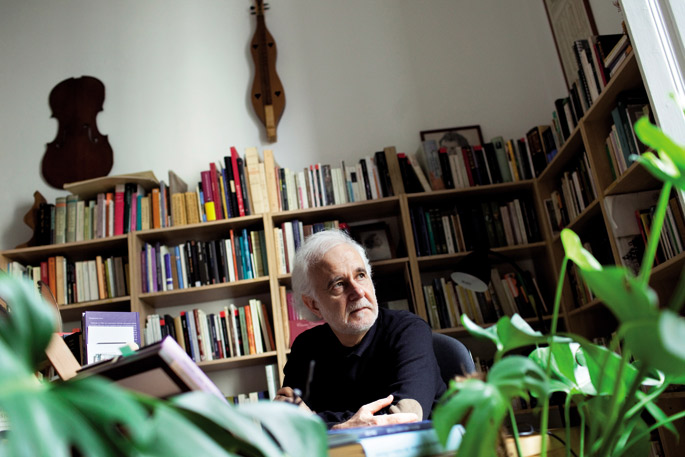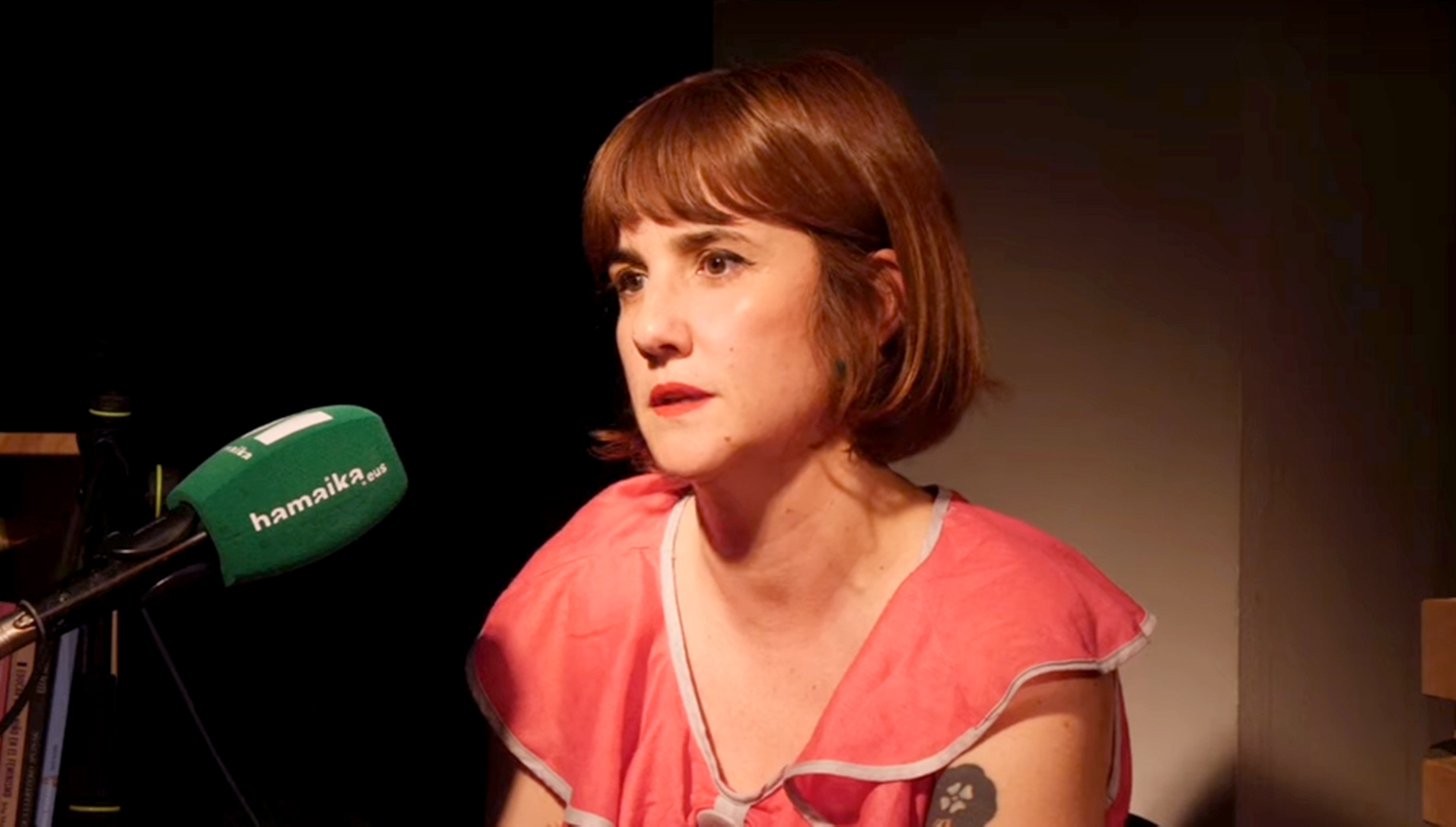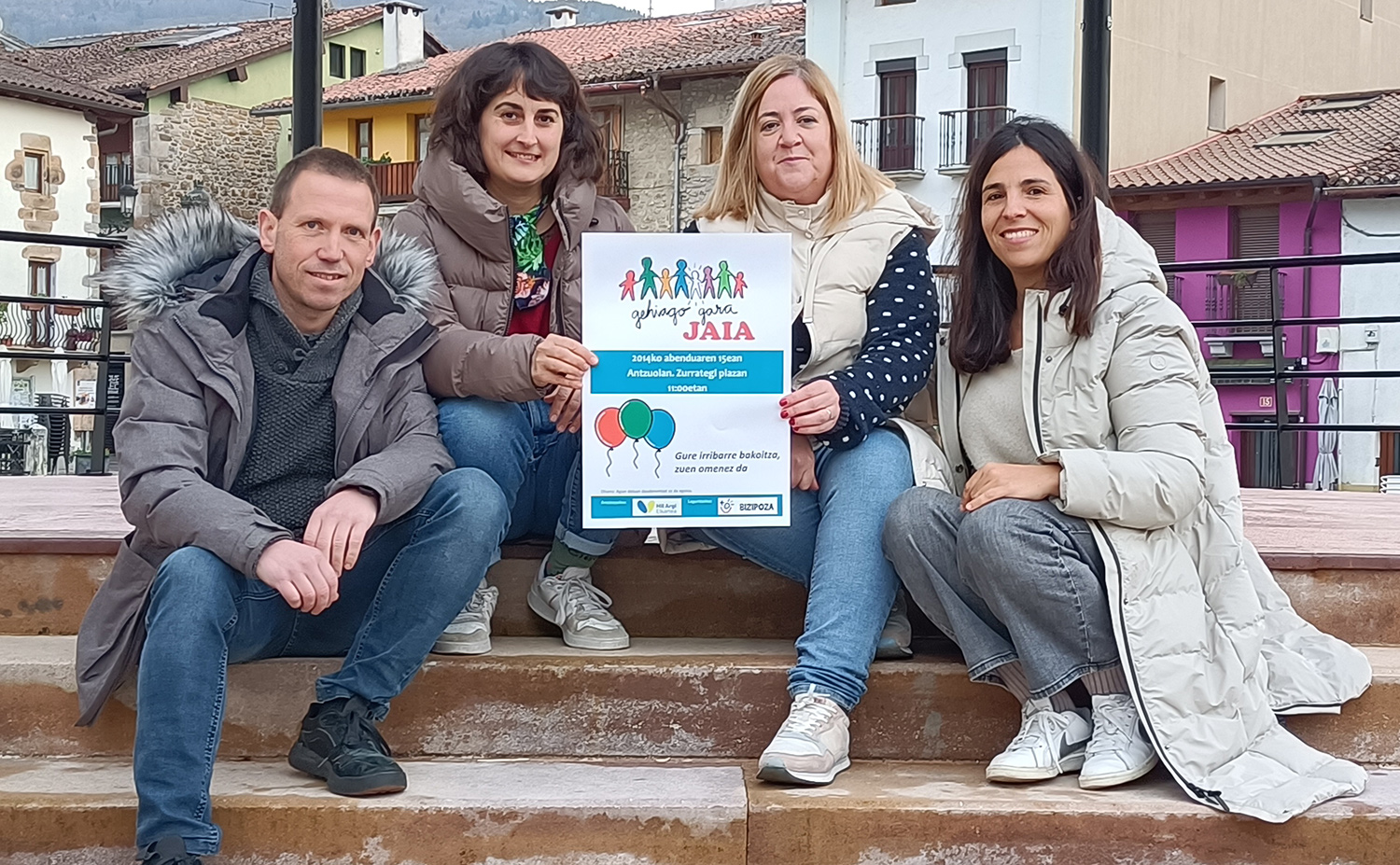"The same suicidal word has a huge ideological burden."
- It is difficult to summarize the trajectory of Ramón Andrés in a few words. Among other things, he has written about music and literature, articles, more than twenty books. The last one, Sempers dolens, will be broadcast in the Multibox room. History of suicide in the West, a 500-page book. The winner of the 2015 Prince of Viana Prize has had an important personal motivation for this work.

A book on suicide. It's not an easy subject.
It's a distant origin: a great friend committed suicide, and we were both 27 years old. I was stunned and started collecting the material. As it is written, it becomes a book about life, not about death. What we think of death, but as a mirror effect, what is existence. It is, at last, a history of mentalities seen through voluntary death.
Suicide is said to be a taboo, but all the references in the book, the reading, the bibliographies contradict that idea.
Today it is also taboo, many times an accident takes place, not only to protect the intimacy of a family: we live as if it were a dishonor, as if it were a defection. He has been silenced, but much has also been said about suicide.
Throughout history, the perception of suicide has changed a lot, and it was not a reason for rejection for the peoples of ancient times.
Aristotle made a long-lasting reasoning: you cannot commit suicide, because it is the product of a society; and it is not yours, but that of the community. St. Augustine added the same idea and said that he does not own himself, because he belongs to God. Of course, all of this was broken in the Renaissance, when the individual was built according to the modern European mentality: you are the owner of yourself, you can do whatever you want. And that's where the great confrontation emerged.
The Church believed that suicide had been possessed by the devil. The pathological origin of medicine.
The most classical psychiatry considers suicide almost always a patient. According to Foucault, the goal is to create sick people: for there to be social security, for the state to adapt your life, to make an organization of death. 90% of suicides cannot have a pathological origin. He was a philosopher and a psychiatrist, according to Jaspers. In addition, this misguided idea can lead us to think that medicine can really confront the phenomenon that responds to an atavic conflict.
There are, therefore, many types of suicides. Not equal in the face of society.
From suicide by a pathology to suicide that could result in the benefit of society. The latter, called altruistic suicide, I give my life for others, was very controversial precisely from the Renaissance. They began to say that Christ knew what he was going to die and that he was a suicide, but he was not despised, he was admitted that he had given his life because of the people.
In the Bible there are many passages of the suicides that are going to die.
And they're altruistic suicides. The stigma imposed on suicide is after Judas, who was hanged by the reception of consciousness. And that demonized him so much, that in antiquity there is voluntary mors, death by your own hand, but in the 17th century the word suicide indicates an ascension: you invented yourself. The name itself takes on a great ideological burden.
People are still dying for the same reasons as thousands of years ago.
Ending pain, ending isolation, ending a path marked by precariousness and misfortune can be abandonment, injustice, shame, not being harassed. Or give in to the fear of a war or an epidemic, confirm a serious diagnosis, the inability to accept a family loss, be forced, not accept the indifference of others, the pain of honor, feel surrounded by boredom, driven out of the world, die by revenge, disappear without knowing why you want to essentially disappear.
Another reason: there are those who end their lives by the fear of death.
Blanchot says well: voluntary death is denial to see another death. It can be unable to live or die. Shakespeare said he had the same fear of life and death. In the newspaper of the year of the plague, Daniel Defoe explained to us how the bodies of the criminals were thrown into the graves, to the uncontaminated people, with a blanket, to be thrown into the pit. For fear of infection, they faced death. It's a terrible picture.
For the two live in one: the will to live, of course, but also of self-destruction.
In nature there is a tendency towards personal destruction. Freud saw it very well. Man builds, but destroys. No one can deny that today we are in a process of social destruction. From a moral point of view, what care will you require someone to commit suicide? It is only miraging the destruction of its environment.
“Ez bakarrik suizidioari, heriotzari bizkarra emanez bizi gara. Erdi Aroan, eta geroago ere bai, hilerriak herriaren erdian zeuden, hildakoak elizan edo eliza ondoan lurperatzen ziren. Gogora datorkit Ainhoako hilerria. Arrazoiak hilerriak urrutiratu zituen, leku apartatuetara eraman. Eta Modernitateak hilerri asko hiritik kanpo eraman ondoren, gaur egun ez dakizu tanatorio baten aurrean zauden edo banku bateko bulegoan, hain da diseinua hotza, aseptikoa dena. Heriotza gauza naturalagotzat izan dugu; baina orain ezustean harrapatzen gaitu, kotoi artean bizi baikara, errealitateari muzin eginez”.
These were my last words when we left, held hand in your deep breathing sleep. Your heart stayed forever without a special, simple, dignified pain. As you want and demand. How we want and respect.
Already a month before the arrival of winter, the last days of the longest night,... [+]
First of all, we wish to extend our condolences to the family and friends of the woman killed in early August.
The people of Gaintxurizketa are fed up with the disillusionment of the administration and those responsible.
Those of us who live in the neighborhood are forced to... [+]
Paris 1845. The Labortan economist and politician Frédéric Bastiat (1801-1850) wrote the satire Pétition des fabricants de chandelles (The Request of the Sailing). Fiercely opposed to protectionism, he ironistically stated that the sailing boats asked for protection against... [+]
(Azken aldi luzean ezin naiz gauez atera, eta arratsaldez ere larri, eta asteburuetan ere ez, eta (jarri zaizue jada ihes egiteko gogoa), marianitoak eta bazkari azkar samarrak izaten dira nire enkontruneak. Konpainiak ondoegi aukeratu behar ditut. Ezin ditut poteoak... [+]











.jpg)










